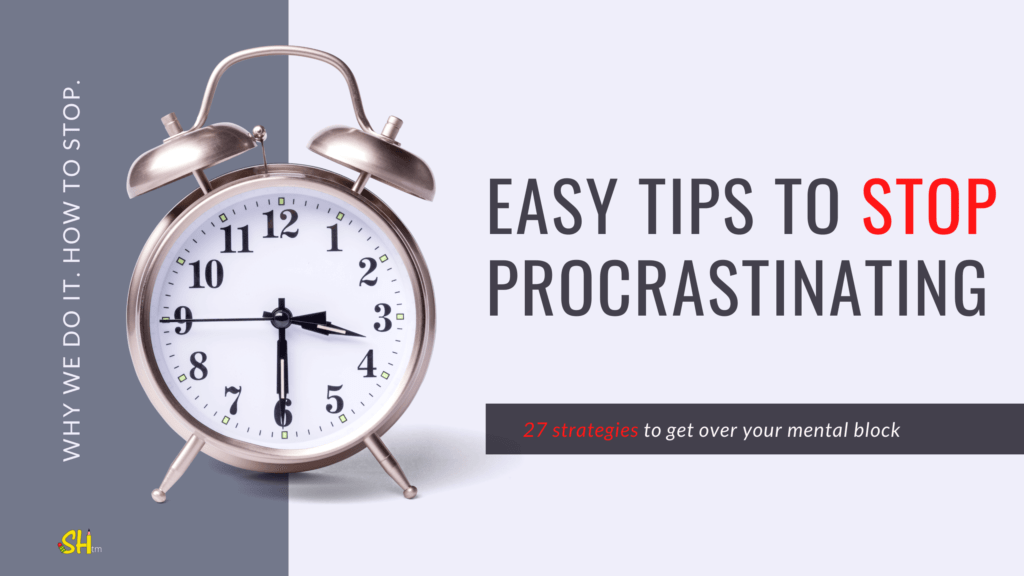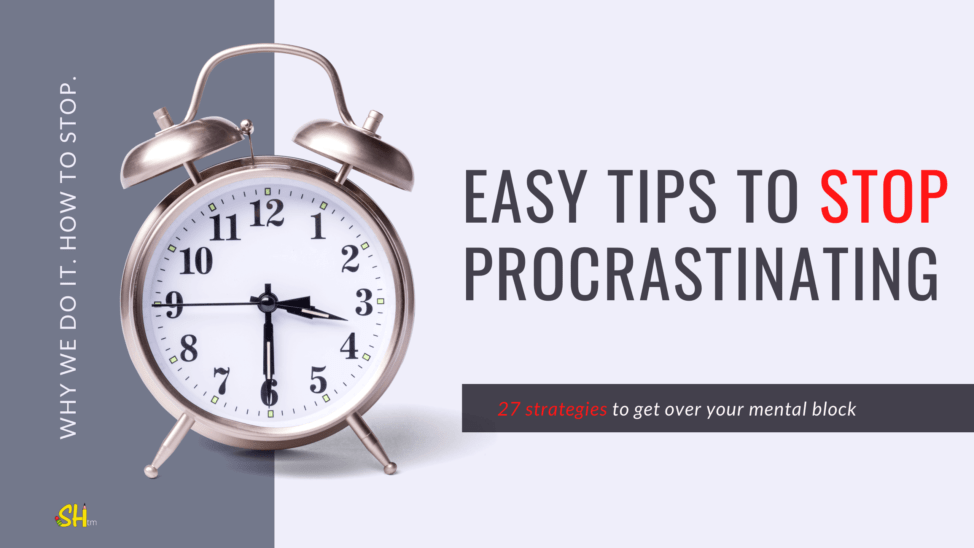
By Katie Azevedo, M.Ed.
We all procrastinate. I’m an actual executive function expert and even I procrastinate. I try not to, I know how not to, I am aware when I do it, but I still do it.
There are reasons we procrastinate. Sure, it’s certainly a matter of self-control, discipline, and all that – but there’s more to it.
Tim Pychyl, a Carelton University professor of psychology, has identified 6 attributes of procrastination. He claims we procrastinate when a task is one of the following:
- Boring
- Frustrating
- Difficult
- Lacks personal meaning / intrinsic reward
- Ambiguous
- Unstructured
The idea is that all of these potential characteristics of a task produce negative feelings. Naturally, to avoid or reduce negative feelings, we avoid the task.
But avoiding the task (procrastinating) only temporarily solves our problem. In the end, it makes it worse, because not only do the negative feelings come back, but so do the consequences of not doing what we were supposed to have done – the assignment, the project, the task, etc.
The next time you’re procrastinating on something – whether it’s doing the laundry, writing your history essay, filing your taxes, whatever – take a second to figure out WHY you’re avoiding it. Which of the 6 characteristics does the task have? Is it boring, frustrating, difficult, lacking personal meaning, ambiguous, or unstructured?
After you’ve done that, then pick from the tips below to get over it.
Tips to stop procrastinating
PS: Have you heard of the most dangerous kind of procrastination? It’s the kind you don’t even know you’re doing.
1. To make a task less boring
- Inspire yourself by going to a new place to work
- Get new materials (pens, paper, etc.)
- Give yourself a reward for finishing
- Game-ify it by timing yourself; try the Pomodoro Technique
2. To make a task less frustrating:
- Break it down into a series of 15-minute tasks and do one at a time
- Work on it with a partner
- Listen to music while you do it
- Pair it with something you like doing
3. To make a task less difficult:
- Get clear about the directions and expectations
- Know where to find answers when you get stuck
- Break it down into a series of 15-minute tasks and do one at a time
- Ask for help
- Find an example / model to work from
- Have a goal of working for only 5 minutes on something; once you start, you might realize it wasn’t even difficult to begin with
4. To give a task more personal meaning:
- Find a way it’s relevant to your life, even if only in a small way
- Focus on the skills you’ll be learning by completing the task
- Think about how good it will feel to be done with the task
- Know that every time you complete “undesired” tasks, you’re building your resolve muscles (eh, science)
- Tell someone you’re going to do it to keep you accountable
5. To make a task less ambiguous:
- Ask your teacher or boss to clarify the instructions
- As your peers or colleagues for help
- Explain the task or project to someone else; if you can’t do so clearly, you don’t fully understand what you’re supposed to do
- Visualize what the final product will look like
6. To give a task more structure:
- Break it down into a series of 15-minute tasks and do one at a time.
- Schedule all the steps you need to take and when you are going to take them (days and times – be specific); use this guide
- Prepare all your materials before you begin, and keep your materials organized in one location
- Give yourself a deadline
Final tips to stop procrastinating
If you read through all 6 reasons we procrastinate, and none of them resonated as your reason, then a) I challenge you to scroll back up and read them again. Carefully.
And then b) if you’re like “naw I just don’t want to finish it,” then do it anyways. You can simultaneously not want to do something and STILL DO IT.
That is worth repeating: You can simultaneously not want to do something and STILL DO IT.

